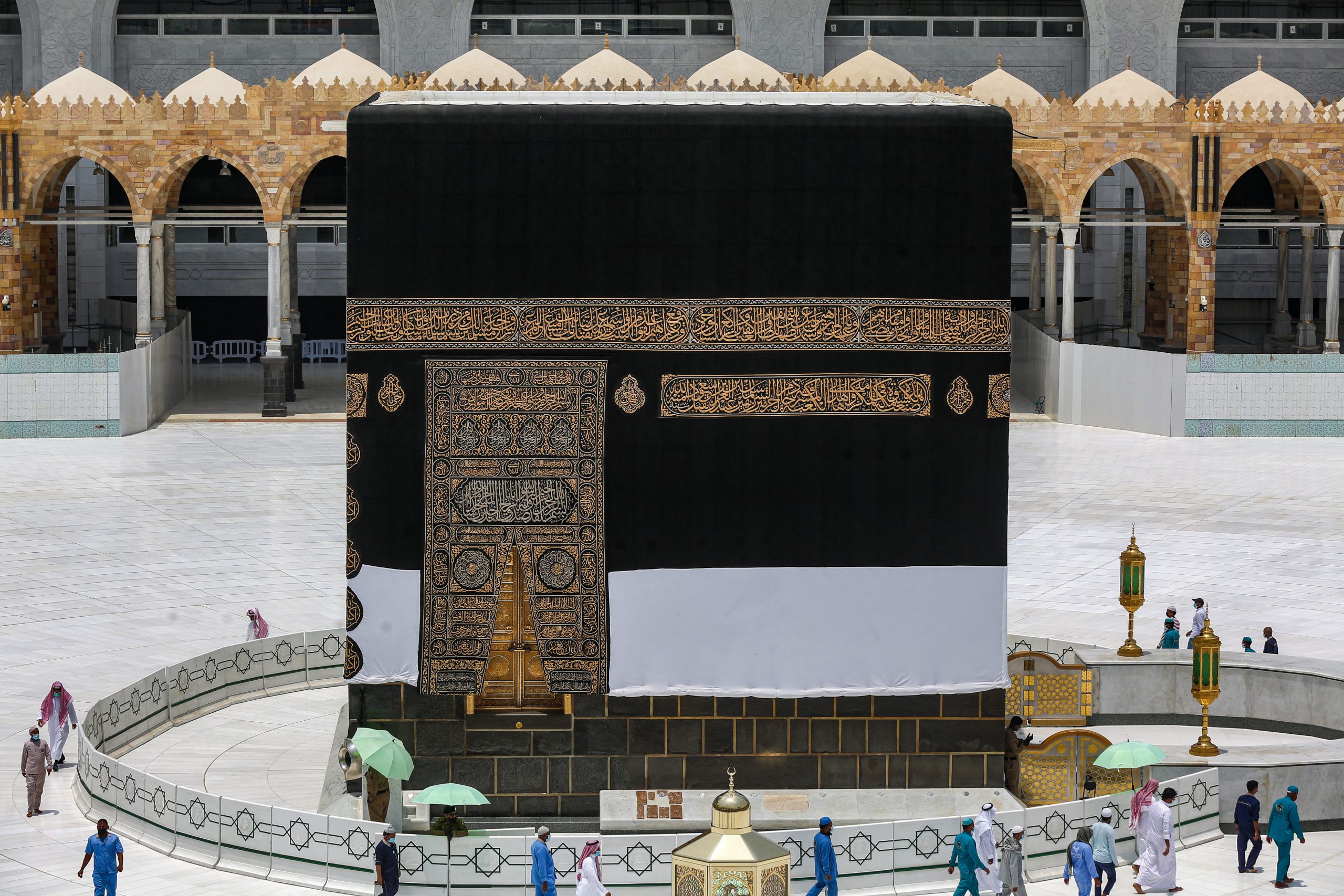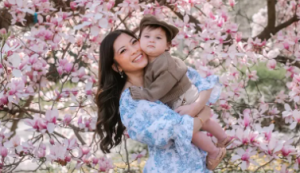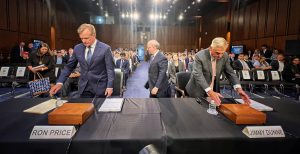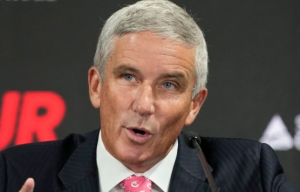Saudi Arabia on Wednesday begins hosting the annual hajj pilgrimage,
dramatically downscaled due to the coronavirus pandemic that has barred
millions of international pilgrims for the first time in modern history.
Up to 10,000 people residing in the kingdom will participate in the Muslim
ritual, a tiny fraction of the 2.5 million that attended last year, after what
many saw as an opaque selection process that left a wave of applicants
rejected.
The foreign press are barred from this year’s Hajj, usually a huge global
media event, as the government tightens access to the holy city of Mecca and
puts in place strict health restrictions to prevent a virus outbreak during the
five-day pilgrimage — a key pillar of Islam.
Saudi Arabia has recorded more than 260,000 cases of the novel coronavirus,
while the number of declared global infections exceeded 16 million on Sunday.
Mask-clad pilgrims began trickling into Mecca over the weekend and were
subject to temperature checks and placed in quarantine, authorities said.
They were given elaborate amenity kits that include sterilised pebbles for a
stoning ritual, disinfectants, masks, a prayer rug and the ihram, a seamless
white garment worn by pilgrims, according to a hajj ministry programme
document.
Pilgrims are required to be tested for coronavirus before arriving in Mecca
and will also have to quarantine after the pilgrimage.
The ministry said it has set up multiple health facilities, mobile clinics
and ambulances to cater to the pilgrims, who will be required to observe social
distancing.
‘Golden ticket’
Saudi authorities initially said only around 1,000 pilgrims residing in the
kingdom would be permitted for hajj but local media reports say as many as
10,000 will be allowed.
The hajj ministry has fielded a deluge of anguished queries on Twitter from
rejected applicants.
But Hajj Minister Mohammad Benten insisted the process was
transparent, telling the Saudi-owned Al-Arabiya television that “health
determinants” formed the basis of selection.
The ministry said non-Saudi residents of the kingdom from around 160
countries competed in the online selection process.
It said foreign residents would make up 70 percent of all selected pilgrims.
But it did not explain how many applied, and some disappointed pilgrims have
complained that the government-run lottery was not clearly outlined and say no
reason was given for their rejection.
Among the chosen few is Nasser, a Riyadh-based Nigerian expatriate, euphoric
at winning what he called the “golden ticket” to hajj.
“This feeling cannot be described,” he told AFP before his arrival
in Mecca.
The ministry has said the Saudi pilgrims were selected from a pool of health
practitioners and military personnel who have recovered from COVID-19.
To be among the chosen ones adds an aura of religious prestige to this
year’s pilgrimage, applicants say.
Despite the pandemic, many pilgrims consider it is safer to participate in
this year’s ritual without the usual colossal crowds cramming into tiny religious
sites, which make it a logistical nightmare and a health hazard.
Even in a regular year, the hajj leaves pilgrims exposed to a host of viral
illnesses.
‘Substantial
cost’
The government scaled back the pilgrimage as it could be a major source of
contagion, but the move will deepen the kingdom’s economic slump, analysts
say.
It comes as Saudi Arabia faces a sharp downturn in oil prices due to a
collapse in global demand driven by national lockdowns, which triggered
austerity measures including the tripling of a value added tax and cuts to
civil servants’ allowances.
The virus has also battered pilgrimage-reliant businesses that support
hundreds of thousands of jobs in Mecca, from travel agents to street barbers
and souvenir shops.
Many have reported sweeping layoffs, pay cuts or delayed salaries.
Mecca has seen a construction boom in recent years that added shopping
malls, apartments and luxury hotels, some offering spectacular views of the
sacred Kaaba, a cube-shaped structure in the Grand Mosque towards which Muslims
around the world pray.
But most premises have lain empty since the pandemic reached the kingdom.
Saudi authorities had already in March suspended the umrah pilgrimage, which
can be performed at any time.
The pilgrimages together rake in some $12 billion (10.3 billion euros)
annually, keeping the economy humming in Mecca.
“Limiting this year’s hajj to Saudi residents comes at a substantial
but surmountable cost to the economy,” the Eurasia Group’s Sofia Meranto
told AFP.
“Against the backdrop of daily infection rates still (remaining) high,
the government is prioritising healthcare… over short-term economic costs,
hoping to recoup lost revenue by next hajj season or by resuming umrah
earlier.”







